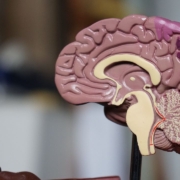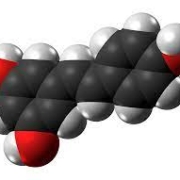CAN RESVERATROL HELP SLOW DOWN THE AGING PROCESS?
Can Resveratrol Help Slow Down the Aging Process? Yes, resveratrol has shown potential in slowing down the aging process. It is a natural compound found in various plants, including grapes and peanuts. The following are some of the potential anti-aging effects of resveratrol:
- Reducing inflammation: Chronic inflammation can accelerate aging and age-related diseases. Resveratrol has anti-inflammatory effects that can help slow down the aging process.
- Protecting against oxidative stress: Resveratrol is a potent antioxidant that can protect against oxidative stress, which can damage cells and contribute to the aging process.
- Activating sirtuins: Sirtuins are proteins that regulate aging and age-related diseases. Resveratrol can activate sirtuins, potentially slowing down the aging process.
- Improving cardiovascular health: Resveratrol has cardiovascular benefits, including reducing blood pressure and improving blood lipid levels. These effects could help reduce the risk of age-related cardiovascular diseases.
- Protecting against age-related diseases: Resveratrol may have potential protective effects against age-related diseases, such as Alzheimer’s disease, diabetes.
RESVERATROL AND ITS POTENTIAL ANTI-AGING EFFECTS
- While resveratrol is commonly associated with red wine, the amount found in a typical glass of wine is relatively low. To get the potential benefits of resveratrol, supplements or foods with higher concentrations of the compound, such as grapes or peanuts, may be necessary.
- Some research suggests that resveratrol may also have cognitive benefits, such as improving memory and cognitive function. However, more studies are need to confirm these potential effects.
- Resveratrol may also have benefits for skin health, such as reducing the appearance of fine lines and wrinkles. One study found that applying resveratrol topically to the skin improved skin elasticity and hydration in postmenopausal women.
- Resveratrol may have potential benefits for exercise performance and recovery. One study found that resveratrol supplementation improved endurance and reduced muscle damage in male cyclists.
- Some researchers have raised concerns about the quality and safety of resveratrol supplements, as the potency and purity of these products can vary widely. As such, it’s important to choose a reputable brand and talk to your doctor before starting any new supplement regimen.
However, it’s important to note that resveratrol may interact with certain medications and supplements. Additionally, high doses may cause side effects, including gastrointestinal issues and headaches. As such, it’s important to talk to your doctor before taking resveratrol supplements, especially if you’re taking any medications or have any underlying health conditions.
In conclusion, resveratrol shows promise in promoting overall health and longevity. While more research is need, the available evidence suggests that it may have potential anti-aging effects. Talk to your doctor before starting any new supplement regimen, including resveratrol, to ensure its safety and effectiveness for your unique health situation.




